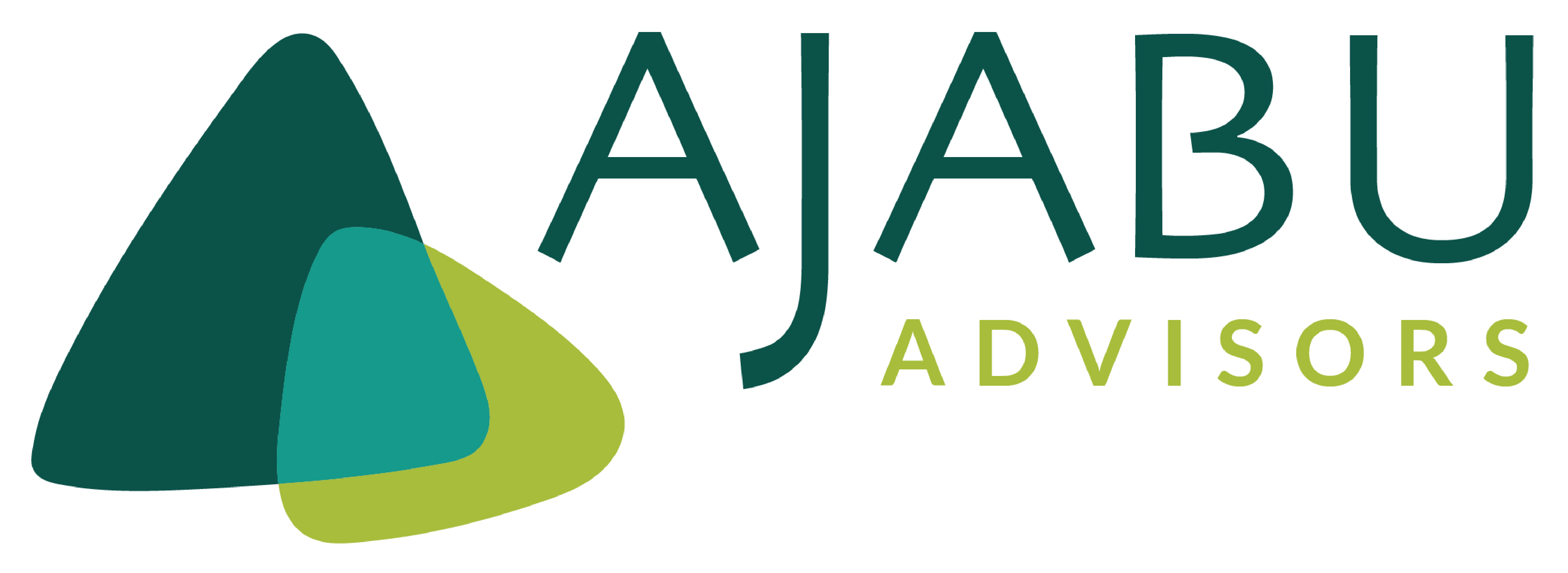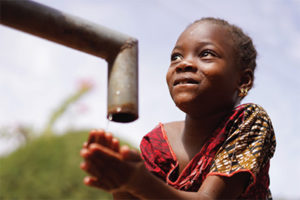What We’ve Done
Social Change Grantmaking
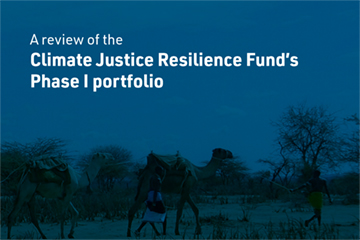
A review of the Climate Justice Resilience Fund’s Phase I portfolio
Final portfolio evaluation of the Climate Justice Resilience Fund, including analysis of its work on systems change, movement building, and capacity bridging around climate justice.

Mid-term evaluation of a global grantmaking program supporting civil society organizations promoting climate resilience with a justice lens.

Conducted an end of project Learning Review of the SABI program, a fiveyear citizen-led accountability program in Sierra Leone funded by UK Aid and led by Christian Aid.

Led an evaluation of the £23m STAR Ghana governance program in Ghana implemented by Christian Aid using outcome harvesting methodology.
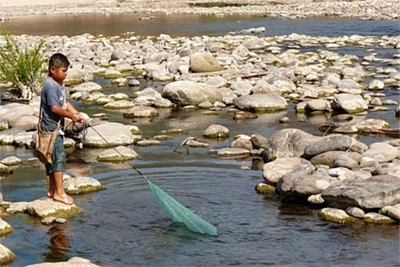
Nonviolent Movements and Material Resources in Northwest Mexico
Three case studies of how socioenvironmental movements in northwest Mexico mobilize resources, funded by the International Center for Nonviolent Conflict.

Evaluation of a Gates Foundation-funded agriculture and climate change adaptation advocacy program in Burkina Faso, Ethiopia, Ghana, Nigeria, Tanzania, Italy, The Netherlands, Brussels (focused on the EU), and Addis Ababa/Nairobi (focused on the African Union). The evaluation used Outcome Harvesting methodology.
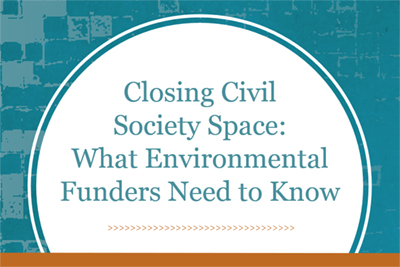
Closing Civil Society Space: What Environmental Funders Need to Know
Prepared a briefing document for environmental funders on the closing space of civil society around the world, based on the results of a funder workshop, background literature, and interviews, funded by the Funders Initiative on Civil Society and Global Greengrants Fund UK.

Crackdown on Environmental Action: How Funders Can Respond
A review of how environmental and conservation funders are finding new ways to support civil society organizations as restrictions on their work rapidly increase, published in the Stanford Social Innovation Review.

Consulted with 40 grantmakers and support organizations to write a study of how funders maintain functions in the face of the closing space of civil society around the world, Resilient Funders. The study was published in The Foundation Review, funded by the Global Fund for Community Foundations and the Global Greengrants Fund.

Strategic Framework of the International Funders of Indigenous Peoples
Conducted a Strategic Assessment, including review of the past five years and creation of a Strategic Framework and Impact Assessment Plan for the next five years, using informant interviews, document review, and facilitating a systems mapping workshop. WE guided participants to map the systems of funding for Indigenous Peoples issues, and the social networks they involve. We then agreed on the most likely paths of influence through these maps that would allow a small organization to achieve big changes in this ever shifting environment. We also conducted a mid-term review after three years of implementation.
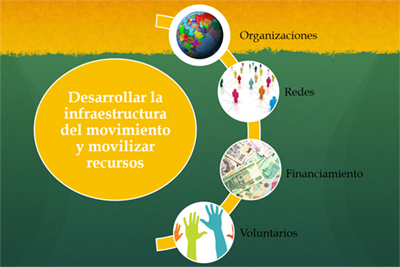
Building Movements through Grantmaking in Mexico
Designed and facilitated a series of two workshops with the team at Fondo Acción Solidaria (FASOL) in Mexico, showing how a conceptual framework for movement building can be a powerful guide for practical grantmaking. Working with a team from INSAD and Civil Society Transitions, we guided the staff and advisors of FASOL to make their grantmaking more strategic. FASOL is on the cutting edge of social change grantmaking in Mexico, and is leading efforts to change the way grantmakers there do business.
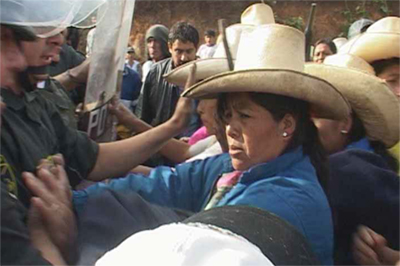
Led this research project with two researchers and Greengrants staff overseas. It is a summary of Global Greengrants Fund case studies in Ghana and Peru of the effectiveness of small grants to civil society to support social movement strategies responding to the mining industry. At the same time, the research contributed to formulation of a Greengrants strategy to create a more profound impact and deeper coherence in its small grants program. The study gave practical recommendations for how to work on wicked problems using small grants, and has been very helpful in working with grantmakers since that time.

Supporting successful movements
This piece is a distillation our experience with how funding can build social movements, one of the most important ways to build lasting change.

Supporting Social Movements with Grantmaking
This is a PowerPoint presentation we did for a meeting convened by the Arcus Foundation, showing how grantmaking with a movement lens supported the growth of movements to deal with industrial mining in Peru and Ghana.
Resilience and Climate Change
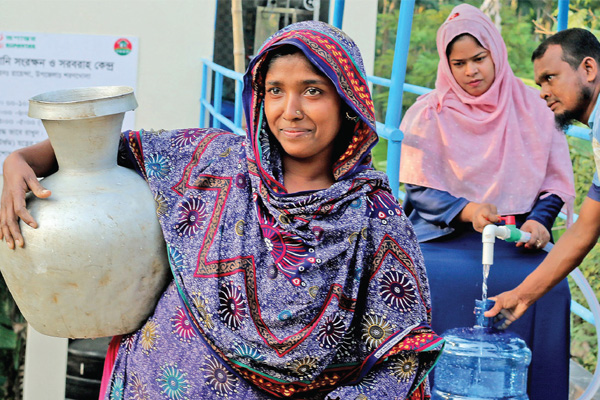
Programme Review of the CARE Denmark Climate Innovation Approach
Final evaluation and case studies of innovative approaches to climate adaptation in Africa and South Asia.

Building Coalitions for Urban Resilience Toolkit (video)
This video serves as an introduction to why it is important to build coalitions for urban resilience in cities.

Urban Community Resilience Toolkits
A toolkit for practitioners to build coalitions addressing the increasingly complex issues facing urban areas. This coalition-building process engages a wide set of interested stakeholders from local government, civil society organizations, the private sector, academia, and community volunteers to identify and pursue locally developed solutions for resilience and climate change adaptation.
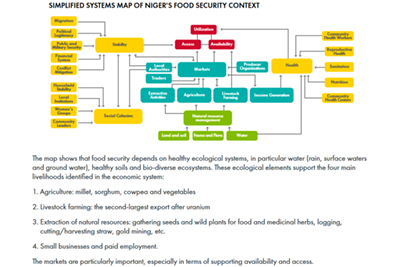
Niger Strategic Resilience Assessment
Led a Resilience Assessment in Niger for Mercy Corps International. Worked with staff from headquarters and field offices to carry out a process involving dozens of participants in multiple countries, created research design for community level Focus Group discussions, Key Informant Interviews, and Expert Interviews, reviewed secondary literature, and wrote a comprehensive report with a Theory of Change for a new 10 year strategy.
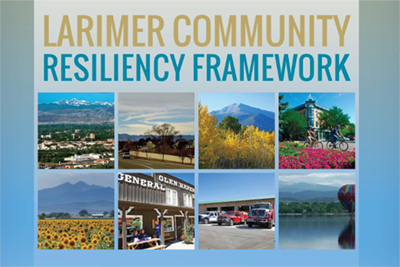
Colorado County Resiliency Plans
Facilitated stakeholder meetings in Larimer and El Paso Counties, Colorado as part of a County Resilience Planning process supported by the State of Colorado Recovery and Resilience Office and implemented by Ecology and Environment Inc. Designed and/or facilitated four workshops with other colleagues, and co-wrote the strategy sections of the County Resilience Plans.
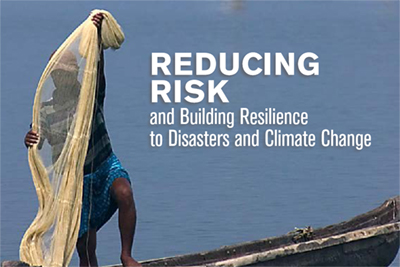
Reducing Risk and Building Resilience to Disasters and Climate Change
Wrote an agency wide Guidance Document for Mercy Corps staff on Disaster Risk Reduction, Climate Change Adaptation, and Resilience for Mercy Corps International. The document reviews the basics of these three interrelated fields, and guides staff into how to use all three to reduce risk for communities around the world to a variety of shocks and stresses. I also created an accompanying training workshop with a Facilitator’s Guide and Power Point,[CA1] with support from Adaptive Resources Ltd. and ISET International, and piloted the workshop in Portland, Beijing and Tokyo with a variety of NGO participants.
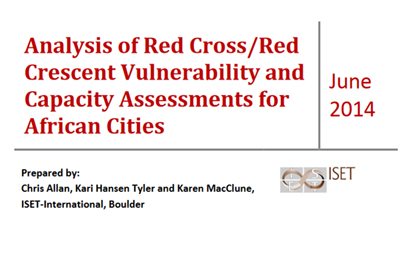
Analysis of Red Cross/Red Crescent Vulnerability and Capacity Assessments for African Cities
Analyzed ten Vulnerability and Capacity Assessments, and recommended extensive changes to handle the complexity and scale issues in urban areas. Conducted a resilience training in Kampala, Uganda and Nairobi, Kenya.

There are many resilience frameworks. Most of them take into account the complex interrelationships between the systems that people rely on, the organizations that run them, and the resources available. They are very powerful, but they take time to understand. For many purposes, simply a list of what makes things more resilient will do in a pinch. We wrote this list to explain some common characteristics of resilience, and how to apply them.
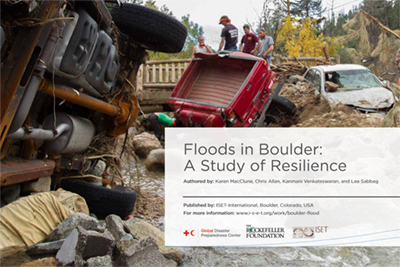
Floods in Boulder: A Study of Resilience 2014
Conducted a study with Dr. Karen MacClune and other staff of ISET-International right after devastating floods ravaged the Boulder area. This case study provides concrete examples of what makes a city resilient through the analysis of built infrastructure, human systems, and legal and cultural norms. This study diagnoses why the county came through unscathed in some areas while encountering massive damages in others. The study used a conceptual framework for understanding resilience developed by ISET-International that has proved to be extremely useful both in the US and internationally. Prof. Ron Brunner described it as “by far the most comprehensive and detailed account of last year’s floods I’ve seen….It is also among the best case studies I’ve seen on disaster mitigation and climate adaptation in other local communities.”

This video made by Boulder County Strong documented 22 neighborhood resilience conversations after extensive floods to find out what worked, what did not, and what people’s current priorities are for building resilience in the area.
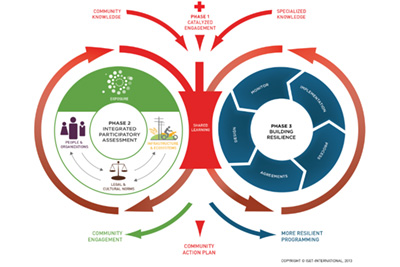
Developed a conceptual framework and training materials for the American Red Cross International Programs staff to develop strong community programs around the world to build resilience to climate and urbanization. Provided guidance on how to start programs in African cities, including connecting all scales of action to build resilience for vulnerable groups.
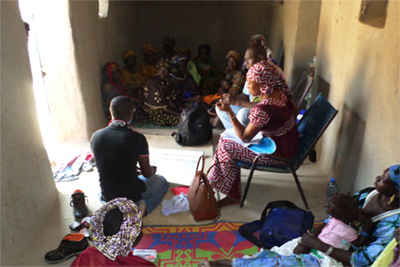
Gender-Sensitive Climate Vulnerability and Capacity Assessment of CARE Mali
Conducted a Gender-sensitive Climate Change Vulnerability and Capacity Analysis in the Mopti Region of Mali using Participatory Rural Appraisal tools, Key Informant Interviews, and secondary literature.

Critical Thresholds, Extreme Weather, and Building Resilience
Facilitated workshops for a NOAA-funded project with a multi-stakeholder group in the City of Boulder to test the use of climate thresholds as a useful way of planning for climate change. As part of a multi-disciplinary team led by Adaptation International and ISET, we helped small cities across the United States understand how to use climate thresholds to manage extreme weather events. The experience showed that staff from important local institutions like government departments, hospitals and non-profits all find it easier to make plans for adapting to climate change when it is framed in terms of extreme weather events that they already have experience of.
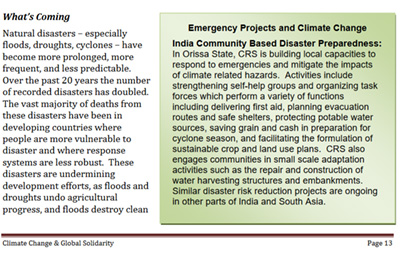
Climate Change and Global Solidarity
Led the first effort at Catholic Relief Services to determine its position on climate change, and what its role should be. This paper set forth the perspective of Catholic Relief Services on global climate change and served as a resource for agency staff to develop follow up plans, including advocacy positions, materials to inform and engage CRS’ US constituency, steps to ensure capacity in overseas programs, and management of CRS’ own impact on the environment. Specifically, the paper addresses how climate change is currently affecting the people, what is expected to happen into the future, what do the teachings of the Church say about how to respond to climate change and what can CRS do to meet this challenge.

Baseline Study for the Lutheran World Relief 12/12 Resilience Alliance in Niger
Designed and implemented a baseline study for Lutheran World Relief of nearly 13,000 households for the $13 million USAID-funded project 12/12 Resilience Alliance in Niger, with CESAF Sarl Consult in Niamey. The project included designing questionnaires, training enumerators, conducting baseline research, analyzing results, and reviewing findings with LWR staff and partners..
Environmental Justice
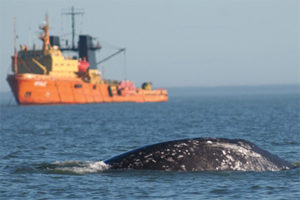
2021 Independent Evaluation of the Western Gray Whale Advisory Panel (WGWAP)
Final evaluation of the performance of a scientific advisory panel led by the International Union for Conservation of Nature (IUCN) designed to mitigate an offshore oil project in Sakhalin in Russia Far East using interviews, a survey, literature review, and verification through outcome harvesting.
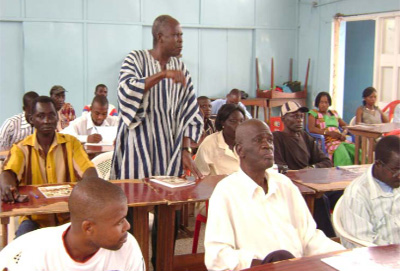
Led this research project with two researchers and Greengrants staff overseas. It is a summary of Global Greengrants Fund case studies in Ghana and Peru of the effectiveness of small grants to civil society to support social movement strategies responding to the mining industry. At the same time, the research contributed to formulation of a Greengrants strategy to create a more profound impact and deeper coherence in its small grants program. The study gave practical recommendations for how to work on wicked problems using small grants, and has been very helpful in working with grantmakers since that time.
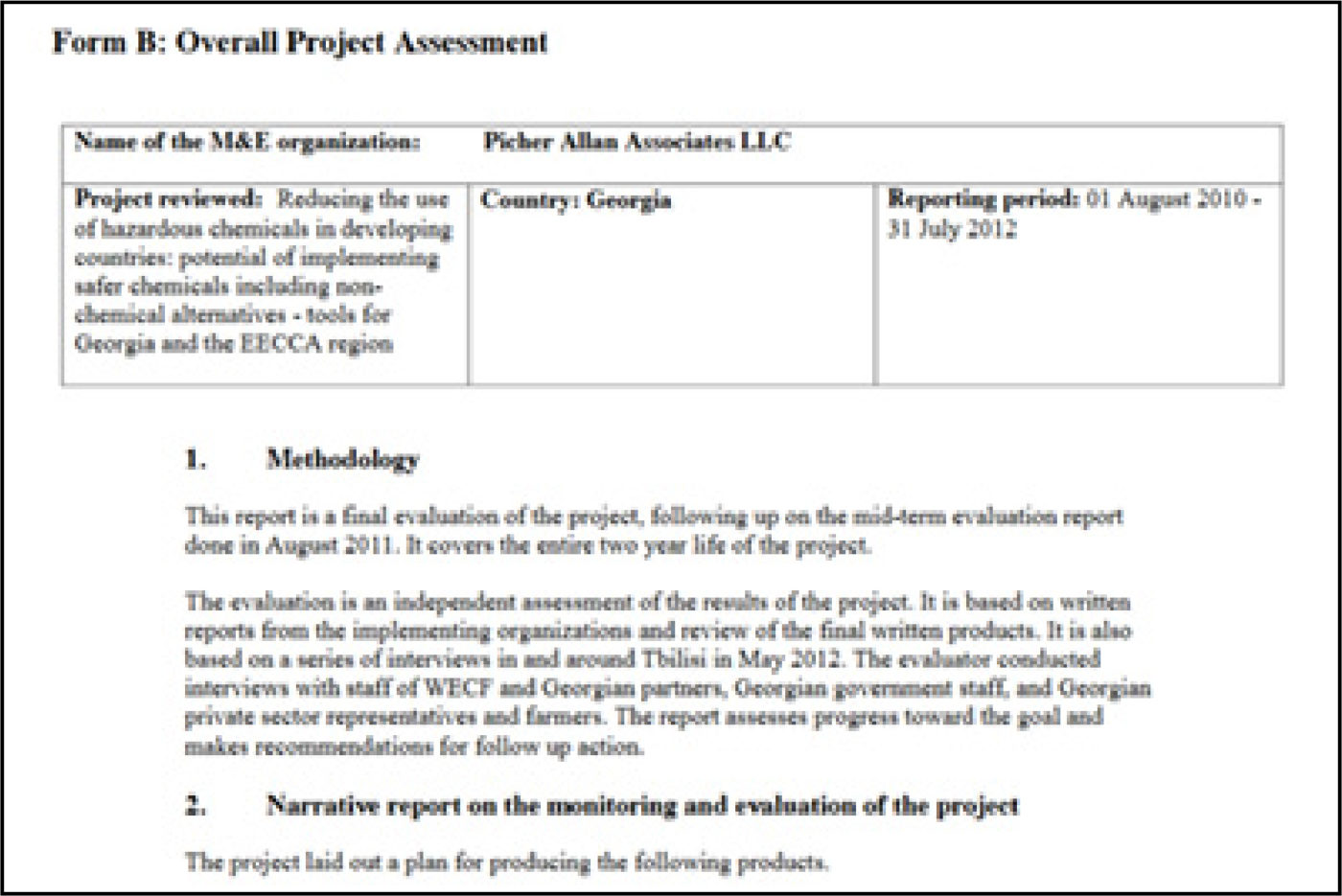
Evaluation of a Quick Start Programme of the United Nations Environment Programme implemented by Women in Europe for a Common Future to support NGO activity in Georgia on reducing exposure to hazardous chemicals from pesticides and housing construction.
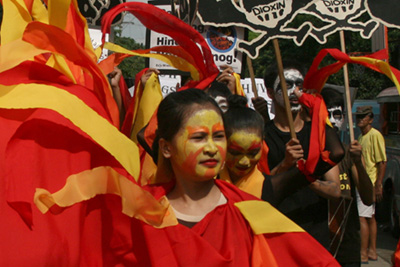
Led production of this report by a coalition of advocacy organizations on every continent for a May 2009 meeting convened by the United Nations Environment Programme.
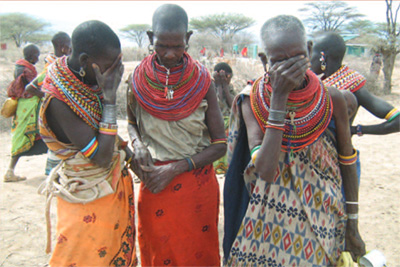
When the Police Are the Perpetrators
Provided expert input for Cultural Survival in documenting an ongoing human rights conflict in northern Kenya against Indigenous peoples. Conducted interviews with eyewitnesses, human rights NGOs, and government institutions.
Managing Complexity

Democratic Republic of the Congo Field Epidemiology Training Program Advanced Level Evaluation
Conducted an Outcome Harvest as part of an evaluation of a Centers for Disease Control and Prevention (CDC) evaluation of a program to train doctors and administrative staff in controlling disease outbreaks.

Final Programme Evaluation of Evidence and Collaboration for Inclusive Development
End of programme evaluation of the UK FCDO-funded Evidence and Collaboration for Inclusive Development in Zimbabwe, Nigeria, and Myanmar implemented by Christian Aid. Managed a global team assessing outcomes for women, people with disability, and other excluded groups.
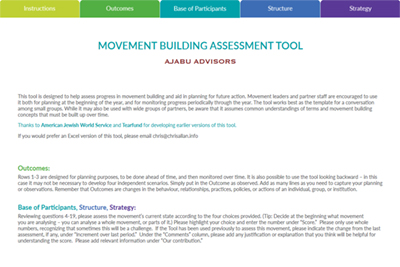
Movement Building Assessment Tool
Evaluated Tearfund’senvironmental movement strengthening programs around the world and developed a method for monitoring progress in movement building on an ongoing basis.

Evaluation of Liliane Foundation Inclusion Network (LINC)
Evaluation of a global network of 30 NGOs in Latin America, Asia, Africa, and Europe active on disability issues.

Mental Frames and Problem Solving
This is a presentation from an interactive session I did with Karen MacClune of ISET at the Front Range Bioneers conference in 2016. The idea was to raise our awareness about the way we all use mental frames to understand issues, and suggest some ways to work with others when our basic ways of looking at things get in the way.

Managing Complex Adaptive Systems, or How I Learned to Stop Worrying and Love Chaos
This presentation describes principles behind managing solutions to complex social problems. It explains the need to move past traditional, linear management systems if we are to solve any of the complex issues that require broad collaborations and networks.
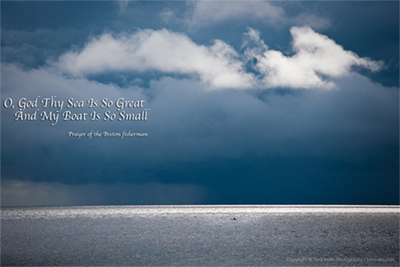
What Faith Based Climate Change Activists Can Learn from Other Social Movements
Led a discussion of faith based climate change activists at the October 2013 Creation Care conference, sponsored by Colorado Interfaith Power and Light and Regis University. The presentation gives a framework for thinking about what successful social movements do, in this case thinking about how faith based activists can use their unique constituencies and spiritual tools in a broader effort to deal with our changing climate.
